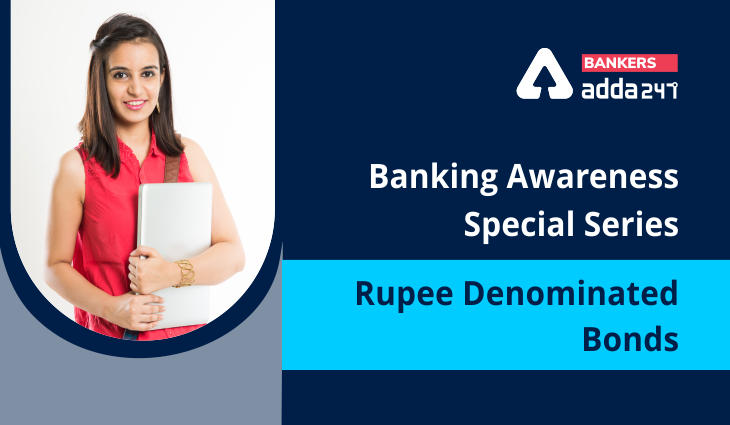Team Adda247 and Bankers Adda have introduced a Special Banking Awareness series for SBI and IBPS Interviews 2021. In this series, we will be introducing the candidates with some banking awareness topics Daily that will improve their general awareness and will also ensure that the candidates do not lack in any banking term when it comes to the interview round. Today the topic of our Banking Awareness Series is Rupee Denominated Bonds.
Rupee Denominated Bonds
A bond that is issued by an Indian entity but in foreign markets and the interest earned on principal and principal also reimbursements are denominated in rupees is called ‘Rupee Denominated Bond’.
It was introduced first by the International Finance Corporation (IFC) when it had issued rupee-denominated bonds in the name of ‘masala bonds’. Thus Rupee Denominated Bonds are also described as Masala Bonds. RBI framed detailed regulatory guidelines for the issue of rupee-denominated bonds in September 2015. In 2016 RBI permitted banks to issue masala bonds to raise funds to meet their capital needs and to collect funds to finance infrastructure projects.
The specialty of rupee-denominated bonds is that buying bonds, interest payments, and repayment all these three are expressed in rupees. All payments are converted into corresponding dollar values at the rate at the time of payment. According to RBI, The maturity period for bonds equivalent to 50 million dollars is 3 years and the maturity period for bonds issued above 50 million dollars in a financial year is 5 years.
Characteristics of Rupee Denominated Bonds:
- It is a debt instrument that helps to raise money in local currency from foreign investors.
- The investor who wants to subscribe should be a securities market regulator is a member of the international organization of the securities commission.
- It can be issued by both government and private entities.
- Investors outside of India can subscribe to bonds and invest in assets this way.
- Multilateral and Regional financial institutions can also subscribe to these kinds of bonds but they have to be a member country for India.


 The Hindu Review October 2022: Download ...
The Hindu Review October 2022: Download ...
 SEBI Grade A Exam Analysis 2024, 27 July...
SEBI Grade A Exam Analysis 2024, 27 July...
 CAIIB Elective Paper Exam Analysis 2024,...
CAIIB Elective Paper Exam Analysis 2024,...


